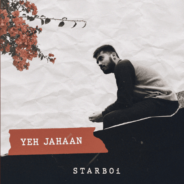Professional Dj Course
Modules Covered
Gives an outline of the different DJing formats available today,explaining how they’ve changed over the years and what the most popular formats are now.
Shows how to hook up the decks to a mixer and amp or speakers, and then explains the basic controls in this setup, which are the fundamental ones you find in all DJing formats.
Explains how to cue tracks with various DJing formats, to enable a complete understanding of the different considerations when using an entirely hardware or a software-based setup.
Teaches some of the musical considerations when mixing, to help students better choose the right track to play and know when to mix it. Topics covered include tempo, time signature and key,as well as swing or shuffle. There is also some information about how tracks are structured and an example of a standard song arrangement.
Teaches what the EQ and Filter controls on a DJ mixer do, so students have a better understanding of how to use them to change the sound of a track and improve your mix. Musical examples are shown through a spectrum analyser to enable a visual as well as aural demonstration.
Combines all the techniques learned so far on the course, and some new tricks, to provide some mixing examples.
Runs through some more of the effects you commonly find in DJing setups, including reverb, delay, flanging and gating.
Continues looking at more advanced DJing techniques by introducing cue points and looping, showing how they can be useful in various mixing scenarios.
Gives a summary of the main points that have been taught onthe course, and then provides some exercises to help improve jogging and beat matching skills.
Provides a glimpse into the life of a professional DJ, by chatting with some of the best djs in the Electronic Music Scene.
Gives you a brief industry insight about social media marketing,creating a brand, approaching clubs/promoters & more.
Help you with a platform to participate/prepare/perform at various DJ competetions that happen in the city.
Course Details
- To know the different types of DJ equipment available and the similarities and differences of each to have a better understanding of analogue and digital systems.
- To learn about audio levels and metering
- To know about the different cables required when DJing
- To know the basic mixer controls and what they do
- To learn some different crossfader techniques
- To understand the pitch controls in a DJ setup
- To know about monitoring considerations and how to cue a track
- To learn more about audio interfacing with a computer
- To have more of an idea about musical characteristics such as tempo, time signature and key
- To have a better understanding of the way music is structured
- To know what audio frequencies are and how to adjust them with filters and EQ
- To know how to beatmatch
- To train your ear to better distinguish tracks when mixing
- To understand effects such as delay, reverb, flanger and gater
- To know how to set up cue points
- To learn about track looping and why it can be useful when mixing
- To know how EQing and filtering can help to clean up and improve the mix
Professional Dj Course allows you to learn Djing on professional Pioneer and Denon mixers. We offer different state of the art equipments to learn and practice Djing so that our trainees can get used to club environment.
Pioneer’s Rekordbox
Engine
Pioneer DJ
Denon DJ



